Hilary Mantel’s spirits and sorrows
It was not until Wolf Hall, the first part of her trilogy about Thomas Cromwell, won the Man Booker Prize in 2009 that she found a wider audience at the age of 57.
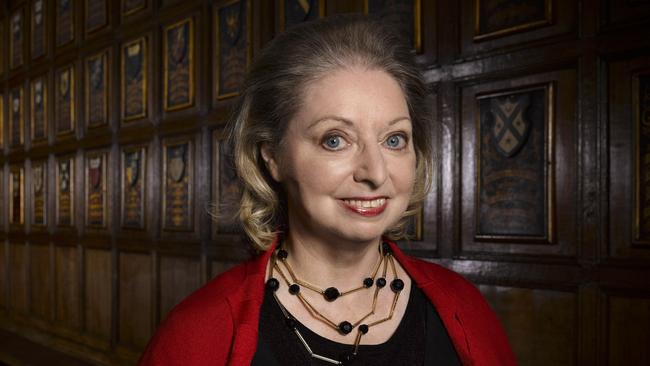
Dame Hilary Mantel, author.
Born July 6, 1952. Died September 22, 2022, aged 70
-
At the age of seven, Hilary Mantel saw the Devil. She described the encounter in her memoir, Giving Up the Ghost: “It is as high as a child of two. Its depth is a foot, fifteen inches. The air stirs around it, invisibly. I am cold, and rinsed by nausea. I cannot move … It has no edges, no mass, no dimension, no shape except the formless; it moves. I beg it, stay away, stay away. Within the space of a thought it is inside me, and has set up a sick resonance within my bones and in all the cavities of my body.”
According to her essay, Ink in the Blood, she met him again during a hospital stay in 2010: “He is 32, 34, that sort of age, presentable, with curly hair and he wears a lambswool V-neck with a T-shirt underneath. We exchange heated words and he raises a swarm of biting flies; I wake, clawing at my skin.”
Such visitations were her familiars. As a child Mantel lived in a haunted house; later she became used to the ghosts of her stepfather, Jack, and Catriona, the daughter she never had but nevertheless named.
At one time she had an apartment in a former asylum and lived among the shadows of long-gone patients. Ghosts were natural to her: “I am used to ‘seeing’ things that aren’t there,” she wrote. “Or – to put it in a way more acceptable to me – I am used to seeing things that ‘aren’t there’.”
It was only natural then that the dead and those who commune with them became a constant presence in her fiction too: there are grave robbers (The Giant, O’Brien), unquiet spirits and mediums (Every Day is Mother’s Day and Beyond Black), a baby stolen for body parts (A Change of Climate), matricide (Vacant Possession), guillotinings (A Place of Greater Safety), burnings (Wolf Hall) and beheadings (Bring Up the Bodies).
Mantel ascribed her sensitivity to this ghostly realm to her Catholicism: both her parents were Irish Catholics. It left her, she said, with “a very strong sense of the world of our senses being – how can I put it? – not the whole story”.
For many years the unsettling world of her novels – “Paranoia is their climate, the macabre is always lurking,” she said – was an open secret, kept by her many admirers and voiced in favourable critical reaction.
What held her back was that she refused to write to a pattern, and neither her publishers nor her public knew what she would produce next, whether it would be historical fiction, Stygian-black comedy, memoir or a modern-day psychological study.
It was not until Wolf Hall, the first part of her trilogy about Thomas Cromwell, won the Man Booker Prize in 2009 that she found a wider audience, endeared no doubt by her acceptance speech in which at 57 she vowed to spend the prize money on “sex, drugs and rock’n’roll”.
The effect of her win was transformative, both on her sales and her profile as a public intellectual: “Until the Cromwell novels,” she said, “I had no identity in the mind of the reading public.”
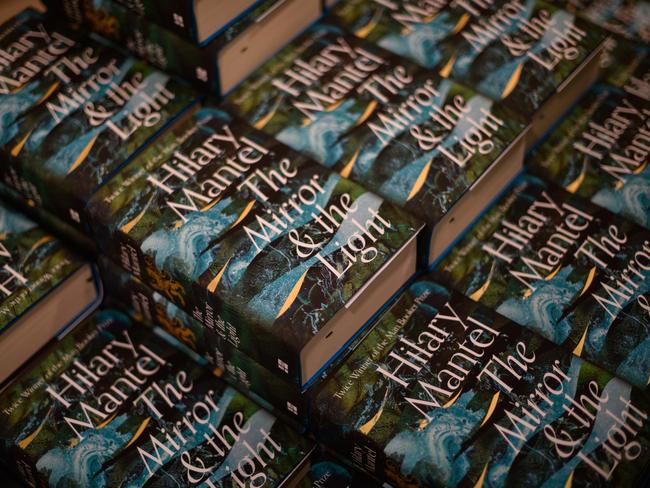
The upwards curve of her personal graph was further boosted in 2012 when the second book of the trilogy, Bring Up the Bodies, written in a five-month spurt, also won the Man Booker.
It made her the first woman to receive the award twice and part of a select trio of double winners alongside JM Coetzee and Peter Carey. It had been a long journey: Wolf Hall was her tenth novel. The last volume of the trilogy, The Mirror and the Light, was published in 2020.
Critics credited Mantel with reinventing the often-dismissed genre of historical fiction – “chick-lit in long frocks” was her description of how it was perceived – and giving it intellectual heft. It was not praise she readily accepted beyond noting that “it’s me doing what only I could do. Nobody else works by this method, with my ideal of fidelity to history.”
That method was one of immersion in the scholarly sources (she had first considered Cromwell as a subject in her mid-20s and had read everything she could find about him) so that when she came to write particular scenes she knew not just the historical record of her characters but intuited their personalities too: “All your senses are alive and it is as if you are straining your ears for the sound of a response.”
Not everyone was a fan of the book, however, and she was taken to task both for using the historical present tense and a narrative voice that referred to Cromwell simply as “He”. Mantel was never quite as cuddly as her appearance suggested and her response showed a flash of asperity: she believed that to change her style would be patronising.
“You simply cannot run remedial classes for people on the page,” she said. Historical fiction, she believed, was about coming to terms with the fact that “history is not shapely”. The way the novelist deals with “the contradictions and the awkwardness – that’s what gives historical fiction its flavour”.
Ill-health
She was born Hilary Mary Thompson in 1952 in Glossop, Derbyshire. Her parents, Henry, a clerk, and Margaret, were English-born from Irish stock and went on to have two sons, Ian and Brian, respectively five and six years younger than Hilary.
When she was seven, her mother’s lover, Jack Mantel, moved in with the family. He shared a bedroom with her mother while her father moved to another room. The arrangement lasted for several years until she, aged 11, and the family, except for her father, moved to Romiley in Cheshire to escape the local gossip and disapproval and start anew. She never saw her father again (he later married a widow with six children and died in 1997) and took Mantel as her own surname.
She attended Harrytown Convent School and won a place to read law at the London School of Economics despite being, as she put it, “female, northern and poor”. She stayed there a year before transferring to the law department at the University of Sheffield, where her boyfriend, Gerald McEwen, whom she had met at 16, was studying geology. She graduated in 1973, a year after the couple married when they were both aged 20.
After university Mantel worked as a social worker in a geriatric hospital, and also as a dress seller in a department store, but her 20s were marked by increasing illness. Her symptoms – pain, vomiting, fatigue – went undiagnosed and were assumed by doctors to be psychosomatic. “I was offered tranquillisers and antidepressants,” she recalled, “and the opportunity of a career as a psychiatric patient.”
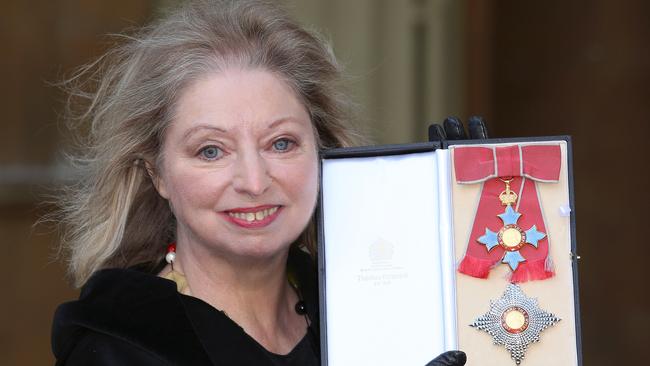
She was briefly admitted to hospital when anti-psychotic drugs actually induced psychosis: “You choke: pressure rises inside your skull. Your hands pull at your clothing and tear at your arms.”
In the end Mantel diagnosed herself with endometriosis, a disorder of the cells that line the womb. It required major surgery that left her with “my fertility confiscated, and my insides rearranged”, while hormone replacement therapy saw her develop “a steroid moon face” and balloon from her previous size eight to a size 20: “I went to live in a body I didn’t recognise,” she said.
Writing was a function of her illness. “By the time I was 19, I knew something was wrong but I didn’t have a diagnosis … the best thing I could do was to get a trade that was under my control.”
Consequently, in 1974, she started working on A Place of Greater Safety, her first novel – although it was the fifth to be published, in 1992 – about the young Jacobin leaders during the French Revolution (she herself had been a radical socialist at university, a member of the Young Communist League). Much of the writing was done in Botswana, where she had moved with McEwen in 1977, when he was posted to work on a geological survey.
The fate of the book was one element in a crisis that hit her on a visit home in late 1979. In quick succession the novel was rejected, her marriage collapsed, and an operation left her unable to have children. The way out, she decided, was to write a short modern novel rather than 800 pages on long-dead revolutionaries: the result was Every Day is Mother’s Day, which was published in 1985.
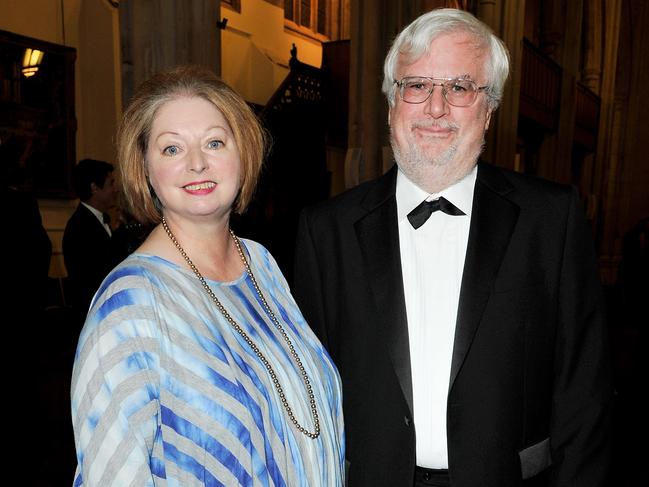
Mantel and her husband divorced in 1980 for reasons she never discussed in public, but they remarried in 1982 and she followed him to Saudi Arabia. She chafed against the restrictions of life there and said leaving Jeddah after several years was “the best day of my life”. The experience had, though, given her material for Eight Months on Ghazzah Street, published in 1988: its theme of the culture clash between Islam and the West came to seem prescient.
Back in England in 1986, with a modest contract to write Eight Months on Ghazzah Street and Fludd, she became film critic of The Spectator – a post she held for four years – and a regular book reviewer. “There’s something very seductive about opening a newspaper if your name is almost always in it,” she said. “You realise that you’re drilling away into the heart of the cultural establishment.”
The couple, though, were never part of literary London, living instead in the dormitory towns of Woking, Windsor and Sunningdale before moving, on the back of her Man Booker success, to a flat with sea views in the coastal town of Budleigh Salterton in Devon. Mantel would relax by watching cricket. McEwen became her first reader and her business manager, looking after contracts and logistics, and survives her.
They intended to move to Ireland but their plans were delayed by Covid-19: in an interview last year with Italian newspaper La Repubblica, Mantel spoke of her disillusion after Brexit and criticised Boris Johnson’s government. She wanted to move to Ireland to “become a European again”.
Fame’s ups and downs
Mantel’s Man Booker wins presaged an increased public presence. Wolf Hall and Bring Up the Bodies were turned into successful stage plays and then a lauded television series, starring Mark Rylance as Cromwell. She was made a dame in 2014. She was also the only living author to have her portrait in the National Portrait Gallery.
Fame had its downsides too: “One of my favourite grim sports, since I became a published writer and had people come to interview me,” she said, “has been to wait and see how the profiler will turn me out in print … ‘Apple-cheeked’ is the sweetest. ‘Maternal’ made me smile: well, almost.”
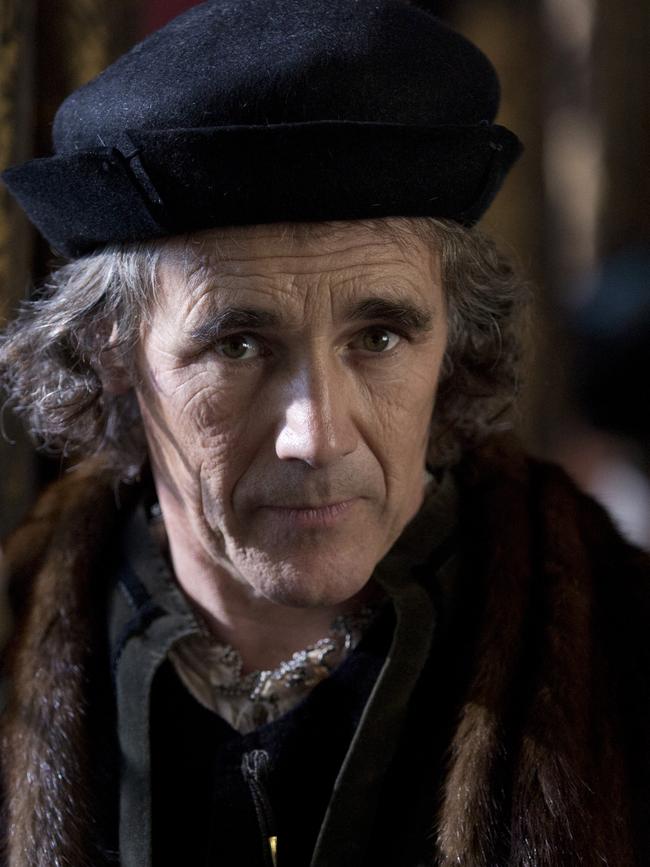
It also drew attention to her that could turn into controversy. In a speech in 2013 she likened the Duchess of Cambridge, as she then was, to a “shop-window mannequin” whose role was to provide a royal heir and suppress her personality. Critics, including David Cameron and Ed Miliband, did not let the fact that her words were delivered in sympathy stop them from criticising her as anti-monarchical. “It was very funny to have press camped out across the road in our quiet seaside town,” she said. “And if the pressmen saw any fat woman of a certain age walking along the street, they ran after her shouting, ‘Are you Hilary?’. Pathetic!”
Mantel was, however, considerably less sympathetic towards Margaret Thatcher, and her short story called The Assassination of Margaret Thatcher led to predictable outrage, including demands for a police investigation. More harrumphing followed when she aired the view that “nowadays the Catholic Church is not an institution for respectable people”.
Mantel’s benign appearance gainsaid such forthrightness: she cut a distinctive figure in capacious and brightly coloured dresses and spoke in a high, accented voice. In conversation she was polite and chatty; on the page she could be fierce and profane: “How can I write like this?” she once wondered. “I am a woman with a delicate mouth: I say nothing gross.”
The answer was perhaps immersion in her topics. When working on A Place of Greater Safety she would inadvertently date cheques 1790.
With Wolf Hall she found herself at book signings inscribing copies in a Tudor hand.
She was clear-sighted about the proposition sometimes put to her that her illnesses shaped her as a writer, a line she dismissed: “I cannot imagine anything in my life that would not have been better if I’d been healthy.” The travails and triumphs of her life did not, she said, make for a romantic story: “I think it’s the story of a hard-boiled careerist, like Thomas Cromwell.”
The Times
